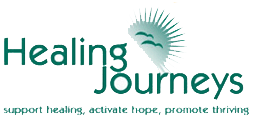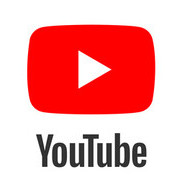by Lior Jacober
Part One
In 1987, G-d threw a personal plague my way. My B.A. in Philosophy fresh in hand, I was trying to decide between law school and a Masters in Bioethics. But there was, it seems, another plan for me.
The private curse had to do with a genetic malformation. A mutation on the white blood cells. The CD-20 protein gone awry. In ’87, they called it “abnormal cell structure suggestive of lymphoma.” Later, they said it was Stage 4 Non-Hodgkin’s lymphoma. “With bone marrow involvement,” they added after the bone marrow biopsy. Stage 5 means Make sure your affairs are in order. Stage 4 gives you a chance of survival, if the treatments don’t kill you, first.
Treatment worked. Quite well, in fact, though there were no good anti-emetics back then. For several years, I had been reading the works of Holocaust survivors. Now, I no longer wondered what it might have felt like to be a bald, starving survivor. Halfway through treatment, I saw Death itself hovering in the shadows by my door. “Get the hell out of here,” I mumbled, grabbing the pot beneath my bed for the 12th time that day.
Later that week, the phone rang. It was Elie Wiesel! Wiesel who survived the Holocaust. Wiesel who wrote about his survival as a teen in Night. Wiesel who won the Nobel Peace Prize in 1986. We had met a few times, at Boston University, where my boyfriend, Moshe, was a religious studies major; Wiesel his advisor. We were Wiesel groupies. Wiesel would usually have an assistant or two shielding him from the crowds after speaking publicly. He was actually a very private man. Following his talks, Moshe would say “I am one of his students,” and we would be allowed into Wiesel’s inner sanctum in another room of the theater, hotel or university hall. To speak with Ellie Wiesel privately, face-to-face, is like entering a Holy of Holies.
Perhaps Moshe had asked him to call in the middle of treatment. It had been a grueling fight that week against the cancer and the chemo. “Hello, this is Elie Wiesel.” His voice on the phone was polite, almost tentative. His Eastern European accent soothing, mellifluous. After a moment of stunned silence, I spoke. We talked for a few minutes. “I don’t know if I can do this anymore,” I said weakly. “We know you can,” he replied. “We have always known you could.” When I hung up, my chemo brain tried to figure out what had just transpired. He had said “We . . . .” He had said “Always . . . .” After that, it did not matter how sick the chemo made me. I did not mind so much the “drilling for oil” into the very marrow of my bones, looking for cancerous blood cells. Elie Wiesel knew something very important, and he had told me — himself.
Not long after, I made a silent pact, a brit. Whereas earlier in my life, I had said “I will never marry,” and “I will never have children,” I quietly decided that, were I to live through this, my own private hell, I would have a child after all — a very Jewish child. I had already kashered my home a couple of years before. I was now keeping Shabbat, in an effort to connect with my heritage. Shortly after being diagnosed, I began studying with an Orthodox beginners’ minyan. Being diagnosed made for an urgency to practice what my people had been saying, learning and doing for thousands of years.
Part Two
A few months later, Natan Sharansky the well-known Soviet Refusenik, had come to Cleveland to promote his new book, Fear No Evil. This was his story about his years in Soviet prisons — punishment for trying to leave Russia and emigrate to Israel. I came to meet him in a bookstore just after my 9th chemo; pale, weak, bald head covered with a scarf. I asked him to sign my copy of his book which I had read cover to cover during treatments. I told him that I had gone to rallies for his release years before, in both the US and Canada. I left him with a letter in an envelope, saying how his book had helped me get through the tough times during the recent illness. “If you could make it for 9 years in the gulag, I could surely make it for 9 months in chemo,” I wrote.
I told him things in the letter I had never told anyone else. Things about my family. Things I had learned from him, about what it takes to get through almost unendurable suffering. I thanked him for putting it all to page. To my surprise, Sharansky phoned me from the airport as he was leaving Cleveland, his last U.S. stop. He said that after rushing from city to city throughout the States, it had all become a blur. He said that my letter had made it — the tiring tour, the never-ending book signings — worthwhile. He gave me his phone number in Israel. I kept in touch with him as best I could.
Part Three
I survived. Six months after finishing chemo, when the oncology check-up said I was clear, I was on my way to Israel for a one-month trip, to give thanks at the Western Wall and see the Holy Land. Waiting off to the side of the crowds at the airport in NYC, I was startled to meet up with Sharansky. Booked on the same flight to Israel, he shared my desire to avoid the huddle near the gate. We chatted before boarding. Once we took off, he came back from First Class to talk again. He told me to keep in touch with him via his Tel Aviv office. People throughout the plane wanted to talk with him. They treated him like a long lost cousin, which he really was to a plane full of Yiddin on an El Al flight to Israel.
I fell in love with the land and the people of Israel. I also fell for a particular man in Sfat. Sfat is a lovely town of artists, mystics, poet and rabbis, in the hills above the Galilee. I went back a couple of months later and stayed for nearly a year. The small town of Sfat was the perfect place from which to love life itself. There, I thrived. There, my son was conceived, a miracle by most medical standards after the specific high levels of chemo which I had taken. When he was born, I named him after the two survivors whom I had come to know: Elie Wiesel and Natan Sharansky. Eliyahu Natan was born at home, only a couple of years after the first diagnosis.
Part Four
Being the son of this type of survivor — my type of survivor — has left its mark on Eli. He knows that life is tenuous. He saw me get sick a second time when he was 4, and then once again when he was 6. That third time, he even wrote a book about it – The Silly Dog. When Eli was 15, the disease came back with a vengeance. Two kinds of blood cancer at once, one Richterized to a more aggressive form. Eli’s response was to raise $10,000 within a year for cancer research, skiing two cross-country marathons in Alaska for the Leukemia and Lymphoma Society. This is the kind of son Eli has become.
Because of the covenant I had made twenty years before, because I gave birth to Eli, I would not, could not give in, give up, succumb. Luck, faith and, as Eli says “plain old stubbornness,” all managed to bring me back from the roller coaster of health, disease, wellbeing and illness, one more time. El, Ya, hu natan in Hebrew means “The Lord, my G-d, has given.” Eliyahu Natan.
Bio: Lior Jacober is a single Mom, seamstress, prize-winning pie chef, and well on her way to becoming a credentialed elementary school teacher. She has had lymphoma 4 times, and has survived not only that but: 4 types of chemo, 4 thousand rads* of radiation, living in 4 different states (Ohio, Florida, Upstate New York and now California,) 4 siblings, and more than 4 decades on this sweet planet.
* The unit formerly used to measure the level of ionizing radiation absorbed by something, equal to 0.01 joule per kilogram of irradiated material.


